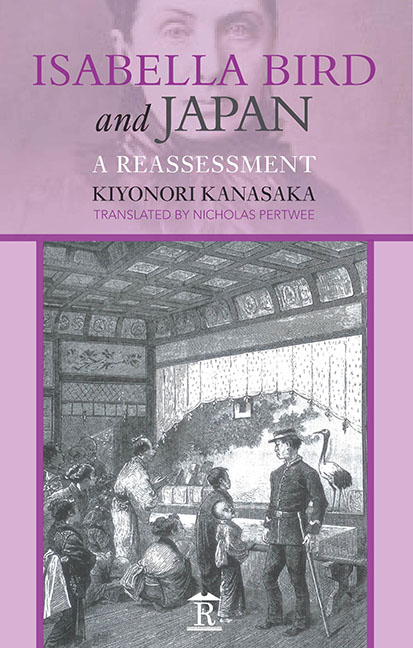Book contents
- Frontmatter
- Dedication
- Contents
- Foreword
- Author’s Preface to the English Edition
- Translator’s Preface
- Preface to the Japanese Edition
- Maps of Isabella Bird’s Travels in Japan (Figs 1–3)
- Chapter 1 Interpreting Bird’s Travels and Unbeaten Tracks in Japan
- Chapter 2 Isabella Bird – A Life of Travel
- Chapter 3 Aspects of Bird’s 1878 Visit to Japan
- Chapter 4 Access and Support in Japan
- Chapter 5 The Legacy of Bird’s Stay in Japan
- Endnotes
- Postscript to the Japanese Edition
- Chronology: The Life of Isabella Bird
- Bibliographies
- Index
Preface to the Japanese Edition
Published online by Cambridge University Press: 06 May 2022
- Frontmatter
- Dedication
- Contents
- Foreword
- Author’s Preface to the English Edition
- Translator’s Preface
- Preface to the Japanese Edition
- Maps of Isabella Bird’s Travels in Japan (Figs 1–3)
- Chapter 1 Interpreting Bird’s Travels and Unbeaten Tracks in Japan
- Chapter 2 Isabella Bird – A Life of Travel
- Chapter 3 Aspects of Bird’s 1878 Visit to Japan
- Chapter 4 Access and Support in Japan
- Chapter 5 The Legacy of Bird’s Stay in Japan
- Endnotes
- Postscript to the Japanese Edition
- Chronology: The Life of Isabella Bird
- Bibliographies
- Index
Summary
THAT ‘TRAVEL ENRICHES life’ is one of the things we can learn from the ‘Precept of Pleasure’ that well illustrates the mentality in his later years of the Edo Period Confucianist and Enlightenment scholar Kaibara Ekiken, himself a great traveller. Travel is a concept common to all mankind.
For men of letters and intellectuals travel has long been a source of knowledge. This was true, for instance, of Li Po, Montesquieu, Goethe and Bashō, but examples are really too numerous to mention. There are many figures who have left their mark on history through their travels, like Strabo, Xuanzang,Marco Polo or Ibn Battuta, or adventurers of the period of the great voyages of exploration such as Magellan. There are not a few examples of the way in which discovery and research are linked in the context of travel, as was the case with the naturalist Charles Darwin, whose Theory of Evolution by Natural Selection would not have emerged but for the experiences gained from his voyage of discovery on the Beagle in 1831–32, or Alexander von Humboldt, the father of modern geography. The Grand Tour on which the sons of the English aristocracy embarked in the eighteenth century to culturally-advanced countries like France and Italy is not unrelated to this adage.
But the idea of travel does not apply just to men. It is also relevant for the women known as ‘lady travellers’, or ‘Victorian lady travellers’ given that most of them were Englishwomen from the Victorian period (1837–1901). That these women are known and recognized stands out all the more as men far outstripped them in terms of numbers.
This is a book about one particular woman, and her travels, who will surely always be at the back of the mind of anyone writing about the ‘lady traveller’ even when she is not the principal focus of their narrative.
My research has been driven by a belief in a particular method that I call ‘scientific analysis’, employed over a period of nearly twenty-five years in order to provide as deep an insight as possible into the many facets of this woman and her travels, the outcome of which is her many books, lectures and photographs, and her activities in charity and social work in support of overseas evangelism.
- Type
- Chapter
- Information
- Isabella Bird and JapanA Reassessment, pp. xxvi - xxixPublisher: Amsterdam University PressPrint publication year: 2017

